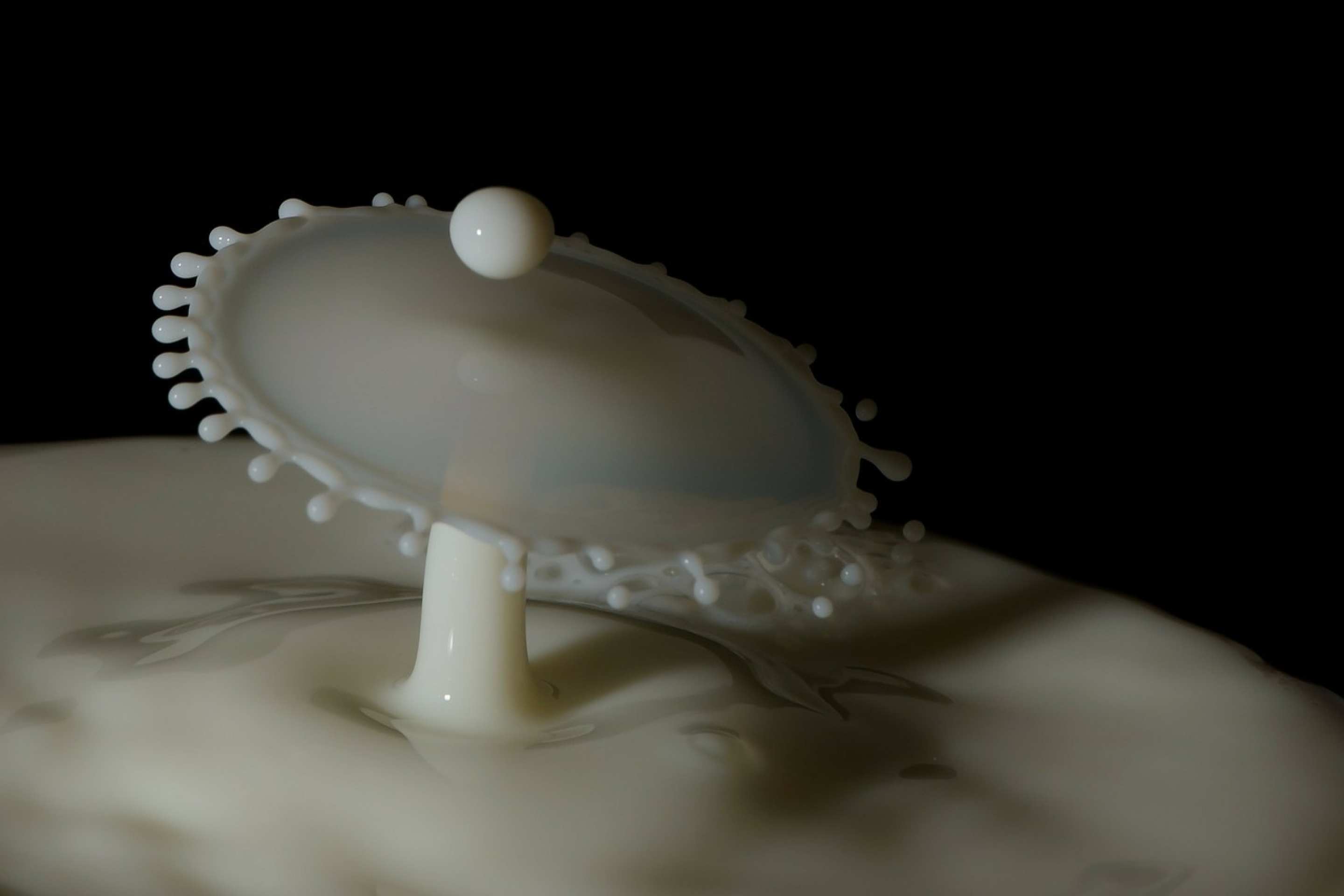Panel set to stir raw milk debate
A panel of experts will weigh the risks against the potential rewards of non-pasteurised milk at a free Sydney Environment Institute event, 'Risky Milk, Risky Cheese', at the University of Sydney this Wednesday.

It is currently illegal to buy raw milk in Australia, but it is sold for cosmetic purposes under strict controls. Yet raw milk advocates claim its health benefits far outweigh the potential public health risks, citing higher calcium levels and better taste when used in products like raw milk cheese.
Concerns around the safety of raw milk products have grown since the death of a three-year-old Melbourne child in December 2014, which was linked to consumption of bath milk made from unpasteurised dairy.
The incident sparked debates over controls around raw milk products and led to the Victorian government implementing regulations to add a bittering agent to raw milk to deter human consumption.
Dr Christopher Degeling from the School of Public Health at the University of Sydney will argue that “scale is a crucial and critical point” in the debate around raw milk regulation, and that carefully controlling the sale of raw milk in Australia is warranted in light of the public health risks.
From paddock to plate, all food is risk and there are food standards for a reason.
“For example, if one drinks raw milk locally there are only the farmer’s standards to have to regulate, plus there is an established trust relationship. But if it’s sold at a supermarket there would also need to be standards around the suppliers and the supermarket. That would make it harder to police and manage,” said Dr Degeling.
International cheese expert and judge Claudia Bowman, of McIntosh & Bowman Cheesemongers, will argue in favour of raw milk law reform. She believes consumers should be given greater access to a variety of highly prized raw dairy products, as in several European countries and the United Kingdom.
“Current controls and limitations do not reflect the modern reality of societies’ greater access to information, better education and workplace training, certification regarding workplace controls, hygiene and risk assessment, as well as batch testing and traceability,” she said.
“More people in Australia die from football-related injuries then from milk consumption, and we don’t have the government trying to ban the playing or watching of rugby league.”
Dr Degeling and Ms Bowman will join Alanna Linn, a postgraduate student from Monash University, who is examining the contested regulatory landscape for raw milk in Australia. She believes Australia could look at frameworks from other countries, such as New Zealand, where raw milk can only be purchased direct from the farmer.
“The ways risk can be managed can be different depending on the scale at which raw milk is made available. When milk is only sold locally and on a small scale, it is possible to know who the seller is and more easily contain and manage the system,” she said.
“People should decide what risks they want to take, like smoking or drinking alcohol, and themselves weigh up the pros and cons.”
The Risky Milk, Risky Cheese panel will be chaired by Dr Frances Flanagan, research affiliate in the Sydney Environment Institute, and is co-presented with Sydney Ideas.
Event details
What: Risky Milk, Risky Cheese, part of the Sydney Environment Institute’s Small Changes’ conversation series
When: Wednesday 16 September, 6.30pm to 8.00pm
Where: Law School Foyer, Level 2, Sydney Law School, University of Sydney
Cost: Free
Related articles
Ready, set, Rio: Sydney cohort heads to the Games
As more than 3.5 billion people around the world turn their sights towards Rio this week, 30 athletes from our community are getting ready to take their place on the globe’s biggest sporting stage.

Sydney excels in national research engagement and impact assessment
What is mental health?
$2.3 million to support industry partnerships for 21 projects
Twenty-one projects have been awarded funding under the University's industry and community engagement seed fund.
Incredible gift means a cure is in sight
Most of us walk through life never having to think about the fact that we can see clearly. But for many Australians, loss of vision is a real problem - and it can be especially scary when it comes out of the blue.
Sydney Analytical launches world-class facility for researchers
University strengthens performance in ARWU rankings
China in 2020 - what can we expect?
Sydney graduates launch face mask to protect against air pollution
Impact of COVID-19 widens gender equity gap: panel
Professor Rae Cooper from the Business School and Professor Renae Ryan from the School of Medical Sciences, Faculty of Medicine and Health joined a panel for an OECD discussion on the impact of COVID-19 on women in STEM.